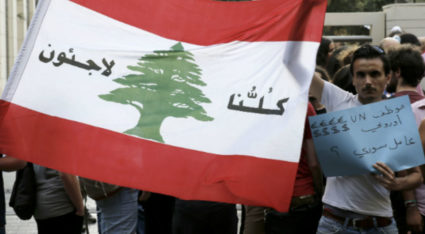You’d expect the Lebanese parliament to make the new 2018 Lebanese budget available online or in the papers, especially that it’s the first budget we pass since 2005 but I couldn’t find it anywhere and even more specifically, none of the articles on the budget had any reference to the controversial Article 49 that allows any foreign national who invests in a real estate starting at around $500,000 inside Beirut and $330,000 elsewhere to obtain a permanent Lebanese residency.
Some MPs objected to passing this article and warned that it is a dangerous matter that could pave the way to naturalizing refugees but the budget and the article in question passed anyway.
The counter-argument of those in favor of Article 49 is that a lot of countries worldwide are introducing such incentives to attract foreign investment and that the real estate market is in crisis in Lebanon. While this may be true, as we’re seeing more and more countries like Cyprus, Greece, Portugal & Spain attract foreign investment by offering residency and even citizenship, I don’t see why anyone would be interested in buying overpriced apartments in a country where there’s no infrastructure, no electricity, no water and where the passport is among the most expensive and worst ranked worldwide, which brings us to the original question:
– Why was this article passed in the first place and who will benefit from it the most? If the argument is that Syrian refugees don’t have money to acquire real estate and Palestinians can’t even own real estate legally speaking, then why insist on passing it? Do you really think Saudis & Kuwaitis are interested in buying any real estate here when they’re not even visiting for tourism? On another note, who will guarantee Lebanese political parties not investing in large residential projects and handing them to refugees in the hopes of naturalizing them one day?
– On another note and assuming this has nothing to do with naturalization. Did anyone consider the fact that a lot of Lebanese can no longer buy apartments and that this might drive the prices up once more? And what about foreign nationals buying apartments and staying abroad? How will inhabited buildings and apartments help the economy?
– Last but not least, who will make sure this article is implemented properly? and that the percentage of real estate acquired by foreign nationals will be respected? From what I’ve read and know, the percentage of land owned by foreigners in Lebanon is over 20% (vs the allowed 10%) in Beirut and over 5% (vs the allowed 3%) outside it so this article makes no sense at all since the quote has been reached and exceeded already.
